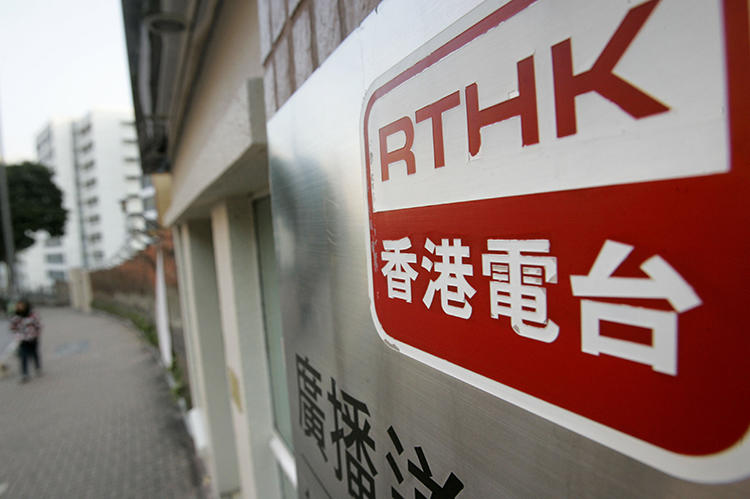Taipei, April 3, 2020 — The Hong Kong government should let Radio Television Hong Kong report freely and without official harassment, the Committee to Protect Journalists said today.
Yesterday, the Commerce and Economic Development Bureau, a government body that supervises the public broadcaster, issued a statement accusing the broadcaster of breaching the “One-China Principle and the purposes and mission of RTHK as a public service broadcaster.”
The statement was issued in response to an RTHK interview with Bruce Aylward, a senior World Health Organization official, in which reporter Yvonne Tong asked Aylward about Taiwan’s status regarding the organization. Taiwan is barred from WHO membership because it is not a member of the United Nations, according to news reports.
“The Hong Kong government must accept that reporters ask questions, sometimes tough ones, as part of their job of gathering news,” said CPJ Asia Program Coordinator Steven Butler, in Washington, D.C. “Slamming RTHK over a legitimate question about Taiwan threatens the press freedom that is fundamental to Hong Kong’s success and identity.”
The interview was conducted on the broadcaster’s English-language program “The Pulse.” In a video clip of the interview that circulated widely online, Aylward appeared not to hear the RTHK reporter’s question, and then hung up after she asked it again.
In its statement, Commerce and Economic Development Bureau Secretary Edward Yau reprimanded the broadcaster and called on the director of broadcasting, Leung Ka-wing, to be held responsible for not abiding by RTHK’s charter.
RTHK rejected the government’s claim that it had breached its mission and charter and defended Tong’s questioning, according to a report from the broadcaster.
RTHK’s union also released a statement, titled “We Have Lost the Freedom to Ask Questions,” on its Facebook page accusing the government of damaging Hong Kong’s press freedom.
The Hong Kong Journalists Association also released a statement expressing regret over Yau’s accusation, and stating concern that such rhetoric would have a chilling effect on the media and worsen the problem of self-censorship.
The Commerce and Economic Development Bureau did not reply to an email from CPJ requesting comment.
In December 2019, CPJ issued a special report entitled “One Country, One Censor: How China undermines media freedom in Hong Kong and Taiwan” that documented the erosion of press freedom in Hong Kong and Taiwan.
